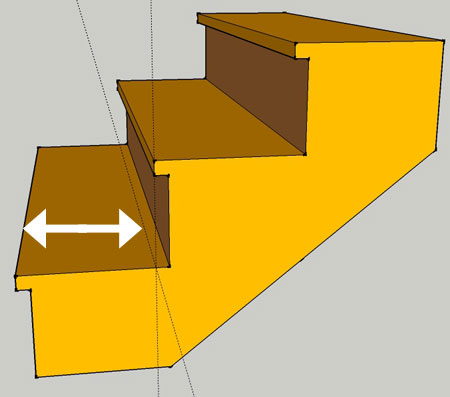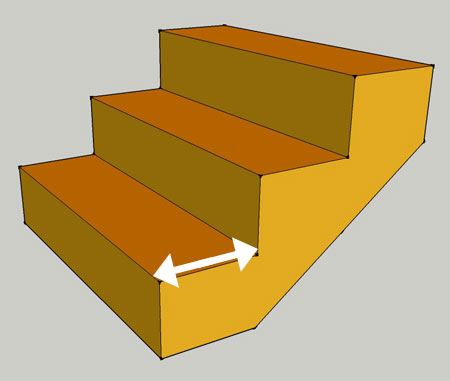Stair Tread Minimum

The minimum stair tread is 11 inches, but there are some
exceptions.
The minimum stair tread for private stairways is 10 inches, but be aware
that it was 9 inches and this could confuse anyone who has been building
stairs before they changed.
Reference: 2012 International Building Code - 1009.7 Page 254
Reference: 2012 International Residential Code - R311.7.5.2 Page 60
Again, this is where we could run into problems with architects,
contractors and building department officials. Just exactly how do you
interpret a private stairway. My interpretation of this particular
building code is that a private stairway would be a stairway used in a
single-family residence with less than 10 occupants.
The 2010 California Building Code Book has a 10 inch
minimum tread for Residential 2 and Residential 3. I couldn't find
anything on Residential 1 building types, suggesting a 9 inch minimum
stair tread depth.
Attention: Don't forget to check with
your local building department to verify any building codes on this
website. This information could be incorrect or outdated. Building codes
are updated regularly and to some building departments have different
interpretations for certain building codes.
How Do We Measure The Stair Tread Width With A Nosing?

If you look at the picture above, the actual stair tread width is measured from the upper face of the stair tread nosing, to the lower face of the stair tread nosing.
You can use a framing square to check this also.
How Do We Measure The Stair Tread Width Without A Nosing?

If you don't have a nosing, then the stair tread can be measured from the face of the lower riser to the face of the upper riser as shown in the picture above. If you're having a difficult time figuring out the minimum stair tread depth, then feel free to send me an e-mail and I will see what I can do. Don't forget that some public libraries have updated building code books and you can always contact your local building department for more information.


